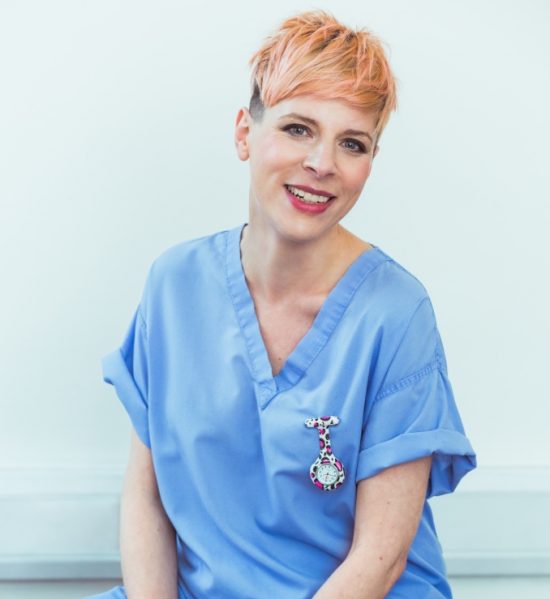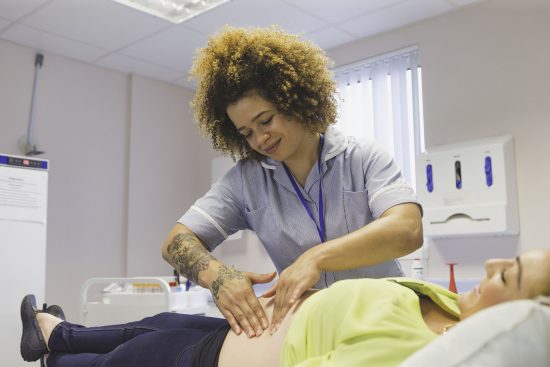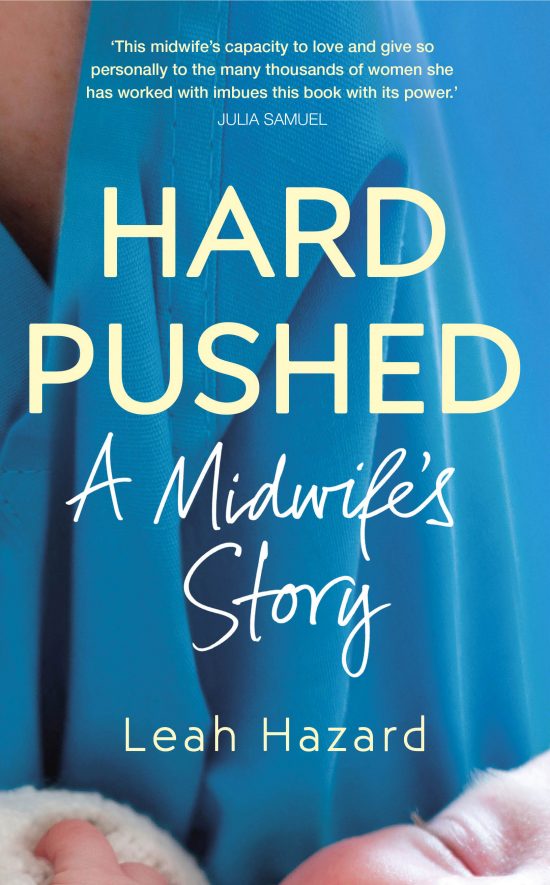We talk to Leah Hazard, midwife and author of new book ‘Hard Pushed’. She tells us about the highs and lows of being a midwife, her top tips for parents-to-be and her wishlist for the NHS.

Many people might think that the most obviously joyful time is the moment of birth. And although the birth is certainly a rush unlike any other, the real daily joy of being a midwife comes in those small moments. The moments when you feel like you’ve had enough time and space to listen to a woman and to give her what she needs.
When I know I’ve made a woman in my care feel heard and respected in all she’s going through – then I’m happy.

As for the actual ‘mess’ – the bodily fluids that are a normal part of pregnancy and birth – it’s amazing what you can get used to. I’ve been covered in pretty much every bodily excretion and it doesn’t faze me.
As for ‘mess’ in the more metaphorical sense – the idea that birth doesn’t always go to plan, or fit into prescribed ideas of what it should be like – that’s the challenge. But it’s also the fascinating part of the job. Midwives learn to roll with that and embrace it.
When I’ve made a woman in my care feel heard and respected, then I’m happy.
In today’s society, we’re used to having as much information as possible, and we tend to micromanage every aspect of our lives. But pregnancy and birth don’t always allow for that level of control.
I often say, planning for birth is like packing for a trip to the moon. You’ve never been there, you don’t know how you’ll feel when you get there – it’s all a bit of an abstract concept. So women’s choices often diverge wildly from their birth plans, and that’s fine, as long as it’s within an informed and empowered context.
It’s good to know enough to make informed choices during birth but be prepared for all eventualities. And forgive yourself if reality ends up being very different from your expectations.
Women are their own biggest surprise, by far. Women fear they won’t be able to handle labour, or won’t be a good mother. I tell them that they’ll probably surprise themselves by how strong and capable they are. That’s because parenthood draws on a person’s deepest emotional and physical reserves, and the vast majority of mums (and dads) rise to the occasion.
Parenthood draws on a person’s deepest emotional and physical reserves
I think most first-time parents are also surprised by how long labour can take to establish. I always remind parents that labour involves so many complex physiological changes, many of which we don’t fully understand.
So it makes sense that nature often initiates these changes slowly and gently over a matter of days. It’s what we call ‘early’ or ‘latent’ labour before ‘established’ or ‘active’ labour really starts.
It’s important to stay positive in the early stages and support each other. Try to remember that you’re stronger than you think.
It’s important to stay positive in the early stages and support each other. Remember you’re stronger than you think.
It sounds cynical, but my top four wishes are money, money, money and money. We need funding to provide adequate staffing levels, better facilities and more bursaries for students.
Better funding would make the system safer for staff and patients. It would also make the workplace less stressful for those who work within it. Mental health is a big problem within the NHS.
Finally, I’d wish for a better understanding in society about how broad and complex a midwife’s role is.
Hopefully, Hard Pushed will help people to appreciate the demands and challenges of our highly skilled job.
If something goes wrong with your care, or if you want to suggest an improvement, do contact your local lead midwife or service users’ liaison committee.
When patients tell me they want to complain about long delays, poor staffing or inadequate bed spaces, I always say, please do. That’s the only way things will improve.

Leah Hazard is an NHS midwife. Having studied at Harvard, she left a career in television to pursue her lifelong interest in women’s health after the birth of her first daughter.
She soon began working as a doula, supporting women in pregnancy and attending numerous births in homes and hospitals across the country.
The birth of Leah’s second daughter prompted Leah to make the leap into midwifery. Since qualifying, she has worked in a variety of clinical areas within the NHS maternity services, including antenatal clinics, triage units and labour wards.
Her new book, Hard Pushed, is a loving, compassionate and intensely candid love letter to new mothers and to Leah’s fellow midwives – there for us at some of the most challenging, empowering and defining moments of our lives.
Find out more about Leah and the character’s stories she tells in Hard Pushed here.